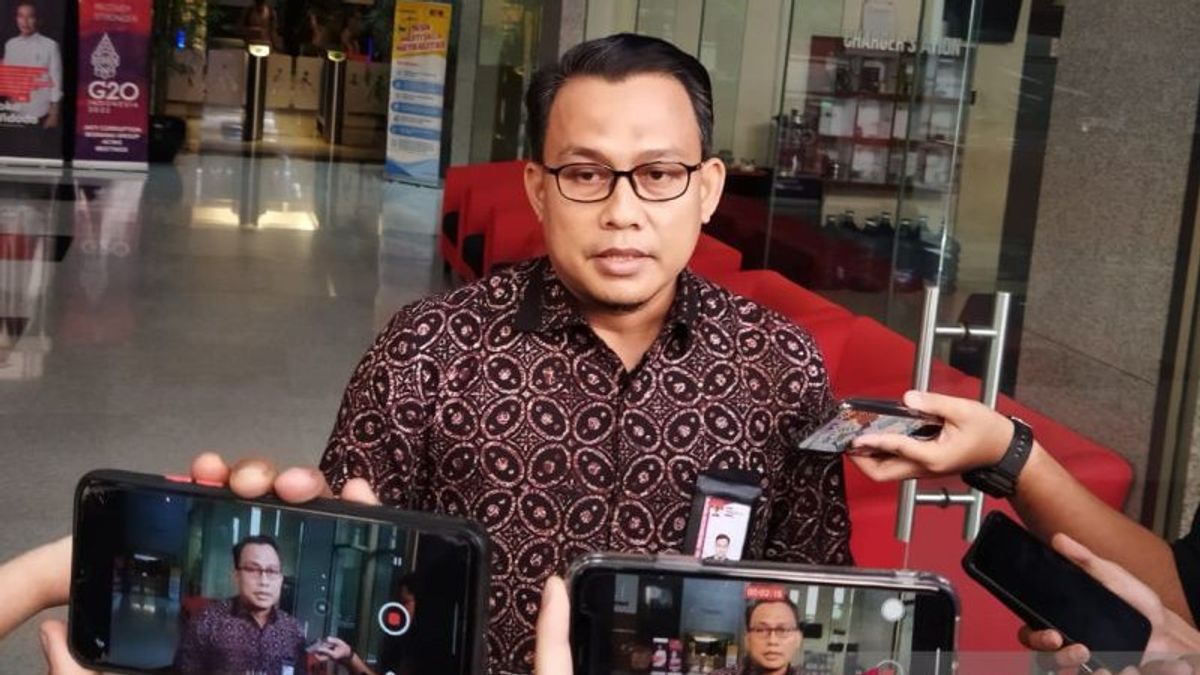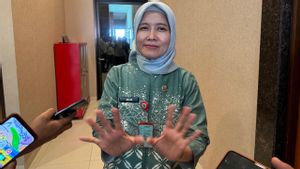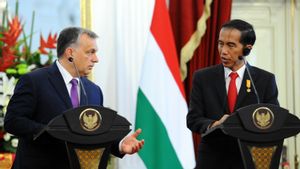JAKARTA - The Corruption Eradication Commission (KPK) said the analysis of Indonesia Corruption Watch (ICW) related to state financial losses due to corruption (tipikor) was misguided.
"From this misguided analysis, it is certain that the premature conclusions generated are wrong, especially the discussion on aspects of corporal punishment, the amount of replacement money, and other additional criminal charges," said Acting KPK Spokesperson Ali Fikri in his statement, Antara, Monday, 23 May.
This was conveyed by Ali Fikri in response to the state's financial losses in corruption crimes submitted by ICW. Ali Fikri continued, other additional penalties also took various forms, including the revocation of political rights which the KPK had several times applied and demanded of the defendants.
Even though the results of the study and monitoring have become input for the KPK as a material for future evaluations, it still needs to be further discussed regarding analytical methods in the conclusion-making process.
"Because if we look closely, the ICW study confuses the discussion of Articles 2 or 3 of the Anti-Corruption Law with articles on bribery and the like which are predominantly handled by the KPK," said Ali.
In fact, he said, it should be underlined that only Article 2 or 3 of the Anti-Corruption Law relates to state losses.
"Then, if we also understand the law well, the typology of corruption in the normative article on bribery has nothing to do with state losses," he said.
Furthermore, he said that monitoring by ICW should also include a discussion on the subsidiary punishment which is the convict's right.
"So it is possible that the return of state financial losses will be replaced with corporal punishment. The mechanism is valid by law," he said.
The KPK, said Ali, through the functions carried out by the Directorate of Asset Tracking, Evidence Management, and Execution (Labuksi) seeks optimally to carry out "asset recovery" or asset recovery from handling corruption crimes.
"Either from the start, through maximum asset tracking of the assets and assets owned by the perpetrators of corruption, the management of evidence is one of them so that the assets confiscated and confiscated do not depreciate in value during the auction," he said.
The optimization is also through the execution carried out by the prosecutor on the court's decision. Through the new KPK Law, said Ali, currently the function of execution is the main task of the function of the KPK so that the executor prosecutor can also carry out confiscations.
"These steps are to strengthen and optimize the recovery of state financial losses by the KPK," he said.
He considers that the analysis that is not comprehensive is certainly very unfortunate because it can distort information for the public as well as observers and academics who are 'concentrated' on the development of legal science.
He also revealed that 791 cases handled by the KPK out of a total of 1,231 were bribery cases or more than 64 percent, where normatively there were no state financial losses.
"Because it is important for the public to understand, corruption should not only be simplified about state financial losses," said Ali.
Previously, ICW noted that state financial losses in 2021 due to corruption which were included in the trial process reached Rp. 62.9 trillion.
"This is a very large number, even the largest in the last five years. In 2020, it was IDR 56.7 trillion, there was an increase in 2021 to reach IDR 62.9 trillion," said ICW researcher Kurnia Ramadhana in her presentation at the Launching of the 2021 Sentence Trends "Low Prison and The Fall of Recovery of State Losses" which was broadcast through the Friends of ICW's YouTube channel, Sunday (22/5).
Of the total state losses, said Kurnia, the KPK only handled 1 percent of cases, which was around Rp800 billion.
"The rest are mostly from the Attorney General's Office, which are divided into the Attorney General's Office, the Attorney General's Office and the District Attorney's Office. This is also a criticism of the KPK so that it also focuses on cases that have a wedge with state financial losses," said Kurnia.
Dedi reminded that when COVID-19 first entered Indonesia, the government considered the disease to be harmless and could be cured with herbs.
The English, Chinese, Japanese, Arabic, and French versions are automatically generated by the AI. So there may still be inaccuracies in translating, please always see Indonesian as our main language. (system supported by DigitalSiber.id)













